Five things we learned from the Tour of the Basque Country 2021
Roglič came out on top in the first Slovenian duel of the season
The latest race content, interviews, features, reviews and expert buying guides, direct to your inbox!
You are now subscribed
Your newsletter sign-up was successful
Tactical intrigue makes for thrilling racing
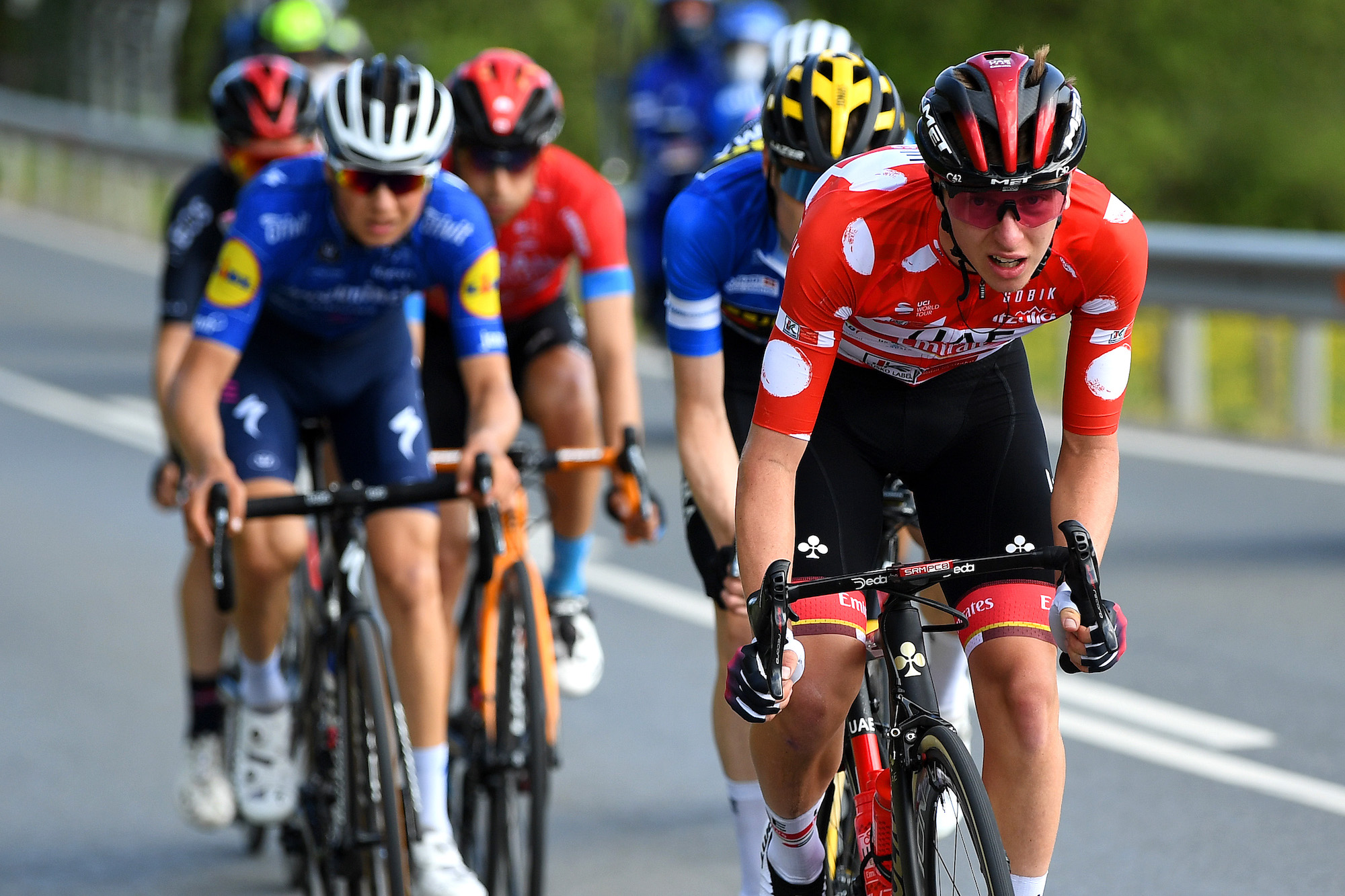
Tactically complex situations often make for the most exciting kind of racing, and that was certainly the case in the final two stages of Itzulia 2021.
All sorts of potential permutations opened up when Brandon McNulty (UAE Team Emirates) attacked on the penultimate stage to take the overall lead from Primož Roglič (Jumbo-Visma).
The top of the GC resembled a chess problem heading into the final stage with McNulty leading the Jumbo-Visma pair of Primož Roglič and Jonas Vingegaard by 23 and 28 seconds respectively, and his own team-mate Tadej Pogačar lurking a little further behind at 43 seconds. Who should attack? And who should mark who? There was no obvious strategy for either team to adopt.
At the time many questioned the wisdom of Jumbo-Visma’s lax approach to chasing McNulty as he rode into the overall lead, but their tactics were overwhelmingly justified by how the final stage played out.
The Dutch team rode aggressively from the start, getting Antwan Tolhoek and Sam Oomen up the road, and found allies in Movistar and Astana-Premier Tech, who were also keen for an aggressive race. That meant that when Roglič attacked the peloton on a descent halfway into the stage — a move that UAE Team Emirates catastrophically failed to mark — he was able to join a leading group that was full of strong riders like Alejandro Valverde (Movistar), Ion Izagirre (Astana-Premier Tech) and Mikel Landa (Bahrain-Victorious), all of whom had team-mates to help, and were committed to staying away.
The latest race content, interviews, features, reviews and expert buying guides, direct to your inbox!
The situation was made even worse for UAE Team Emirates when McNulty ran out of gas on the third-to-last climb of the day, but in truth the damage had already been done the moment Roglič joined the lead group while McNulty and Pogacar remained in the chasing group behind — a group which, despite Pogačar’s sterling efforts, was too far adrift to catch back up to the leaders.
It was a tactical gamble from Jumbo-Visma to concede the yellow jersey the day before, but one that paid off handsomely in the end with Roglič being crowned the overall winner.
Roglič outrides Pogačar in first Slovenian duel of the season
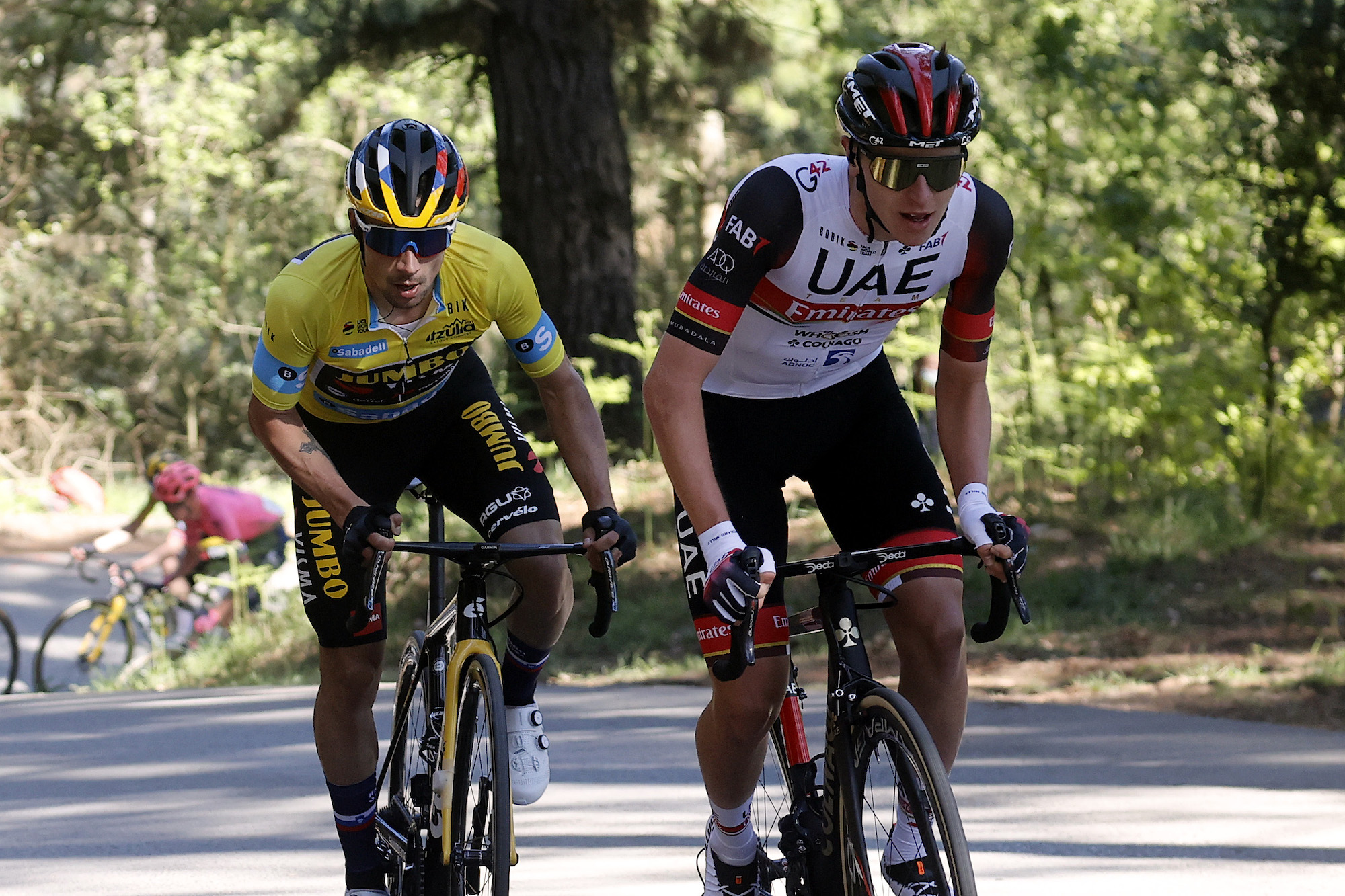
For all the tactical nuances that characterised the race, one of the reasons Roglič won the race was simply because he was stronger than his Slovenian compatriot when it came down to a simple one-on-one duel between the two favourites, Primož Roglič got the better of his Slovenian compatriot.
Roglič landed a major blow in the opening time trial, which he won with an advantage of 28 seconds ahead of fifth-place Pogačar, showing no signs of any psychological hangover from the last time the two rode against each other in a time trial at the fateful Planche des Belles Filles stage of last year’s Tour.
Pogačar tried to distance him on the following climbing stages, and gained a handful of bonus seconds by outsprinting him to win stage three at the summit finish in Ermualde, but was unable to drop him at any point.
Then on the final stage, Roglič’s superiority descending proved to be decisive, as he opened up a gap ahead of Pogačar on the downhill of the Elosua-Gorla, and was not seen by his rival again. It was the pivotal moment of the race, and once again demonstrated Roglič’s mental toughness — despite losing Paris-Nice after crashing on a descent last month, he had the fearlessness to effectively win Itzulia with a daring downhill attack.
There’s still a long way to go until their headline rematch at the Tour de France in July, but the signs this week were that Roglič currently holds the advantage.
Vingegaard plays crucial role as Jumbo-Visma triumph over UAE Team Emirates
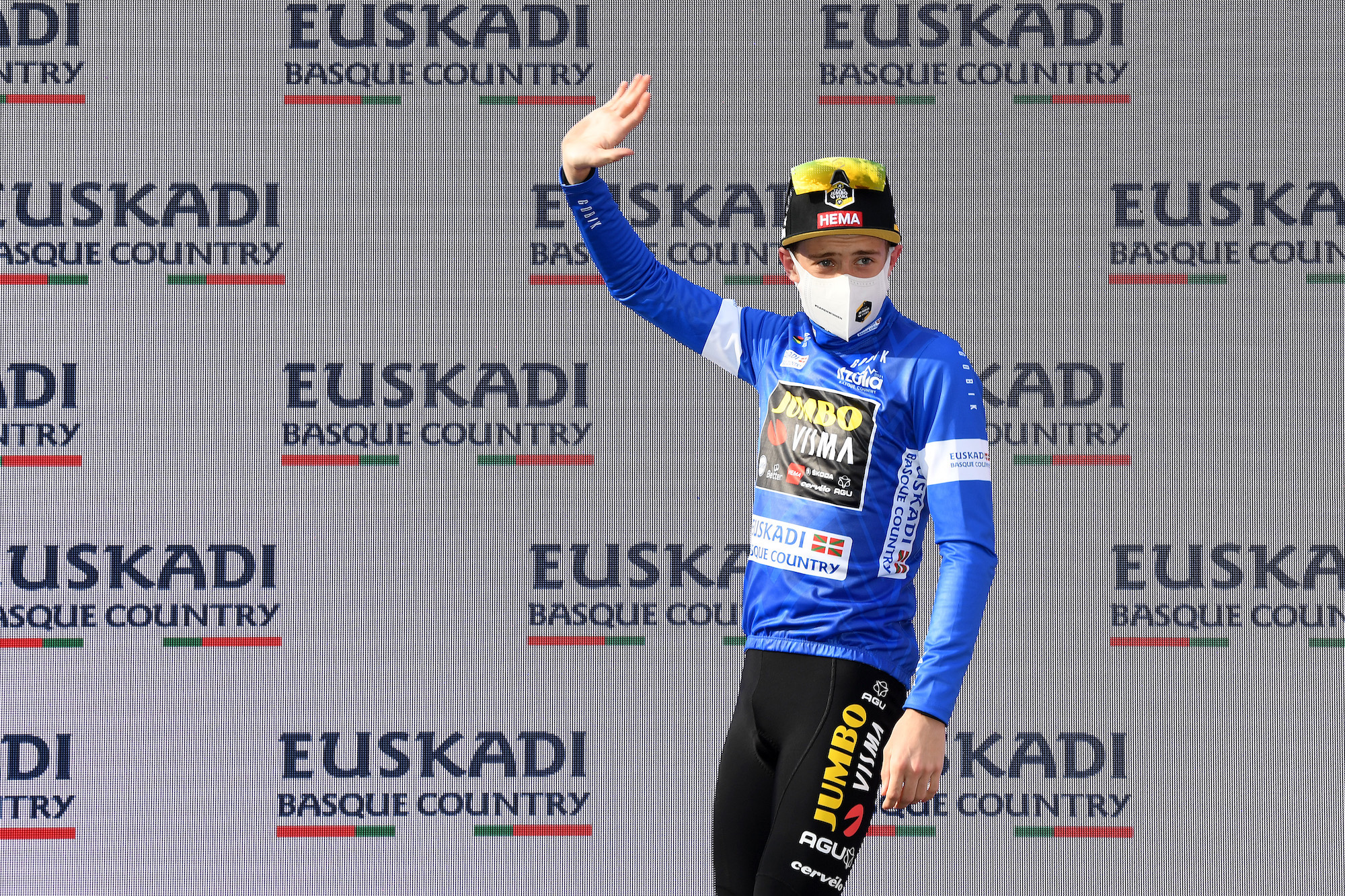
The 2021 Itzulia will be remembered as a tactical triumph by Jumbo-Visma, but their gamble of conceding the yellow jersey on the penultimate stage may not have worked out were it not for a brilliant ride by Jonas Vingegaard.
On the final stage, Vingegaard did to Pogačar what Pogačar ought to have done to Roglič — follow his every move. By sticking so resolutely to the UAE Team Emirates rider’s wheel, Vingegaard freed his team-mate Roglič to go commit everything to his attack, safe in the knowledge that his Jumbo-Visma team-mate was poised and well-rested to fill-in as a plan-b option should he run out of gas.
Should Vingegaard have faltered in the manner that McNulty did, and McNulty instead have ridden as strongly as Vingegaard did, there would have been a reasonable chance that the UAE Team Emirates pair could together have caught Roglič, and worked him over to win the GC. That Vingegaard was instead able to survive as Pogacar laid the hammer down on the climbs, and was one of only three riders (along with Alejandro Valverde and Adam Yates) to stay with him all the way to the finish atop Alto Arrate, was of huge worth to his team.
That result was not only good enough to help Roglič secure overall victory, but also gained Vingegaard a runner-up finish on the overall standings. The young Dane got off to a blistering start with third in the opening time trial, and successfully marked McNulty’s attack on stage four to move into third overall, before climbing up one more place following McNulty’s collapse on the final day.
Jumbo-Visma may not have taken big hitters like Steven Kruijswijk, Sepp Kuss, Wout van Aert or George Bennett to the Basque Country, but in Vingegaard they have developed a very talented 24-year-old who further bolsters their formidable squad, and could play a vital role as they chase Grand Tour victories later in the season.
Astana-Premier Tech end 2021 draught in style
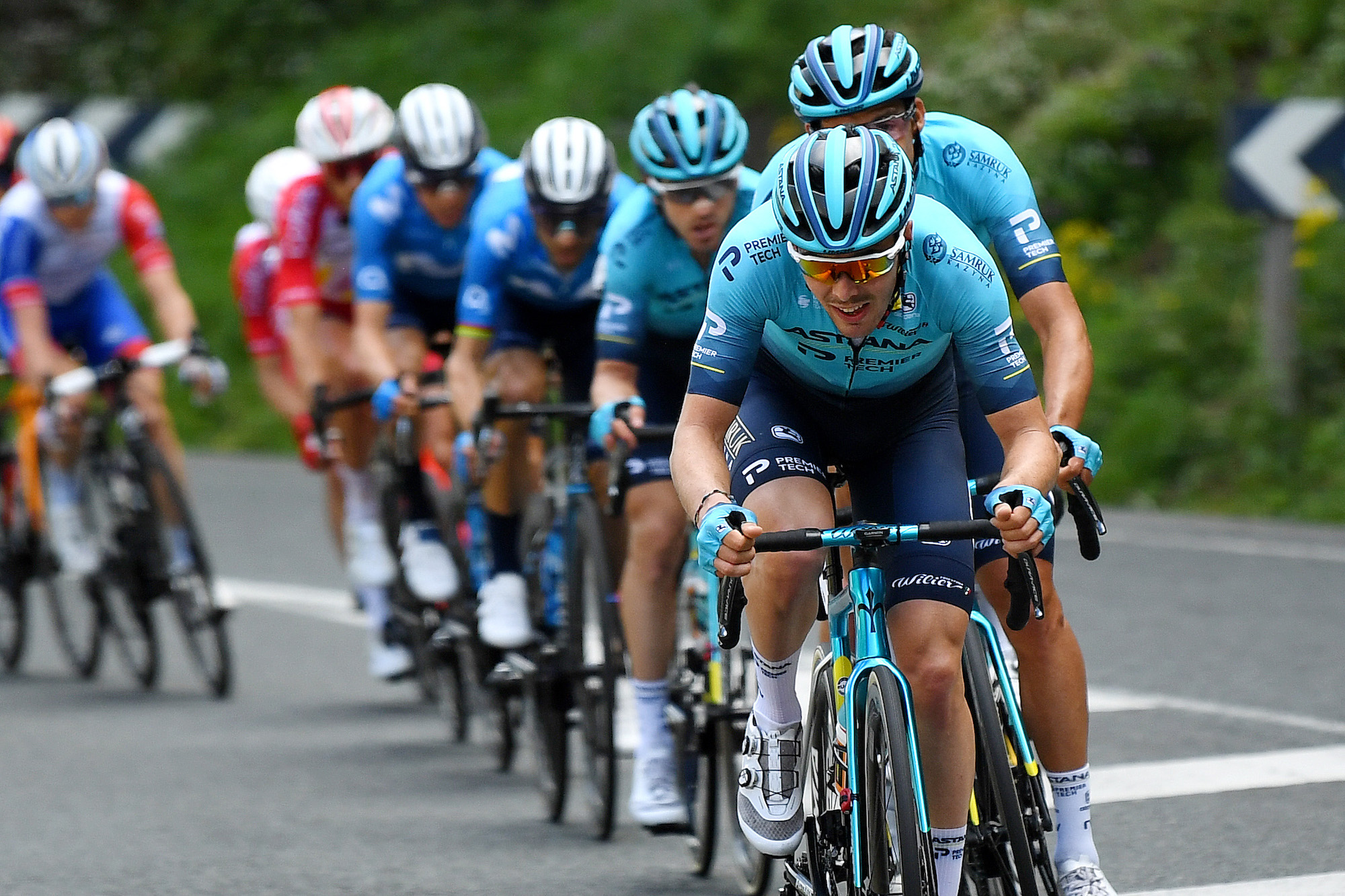
After a slow start, Astana-Premier Tech’s 2021 finally got going this week, as they gained their first two wins of the season.
While the team’s lack of cobbled specialists means they are rarely a feature in the spring classic, they usually have several wins in stage races to their name by this point in the season, but had this year come up short prior to Itzulia.
In the Basque Country, however, they looked back to their best. Stage two was especially impressive, making the most of the numerical advantage they earned over the final climb, with Alex Aranburu attacking to victory while Omar Fraile marked wheels and won the sprint to complete a one-two.
There was further success two days later, when local favourite Ion Izagirre won the sprint from a six-man breakaway to claim the team’s second stage victory.
They might not have mounted a significant GC challenge, with Izagirre ending up their highest finisher in tenth, but they were still responsible for the decisive moment in the GC race when Aranburu and Izagirre caused the split on stage six that saw Roglič break clear of the peloton, in one of their many downhill attacks throughout the race.
Big names in contrasting form as Grand Tours approach
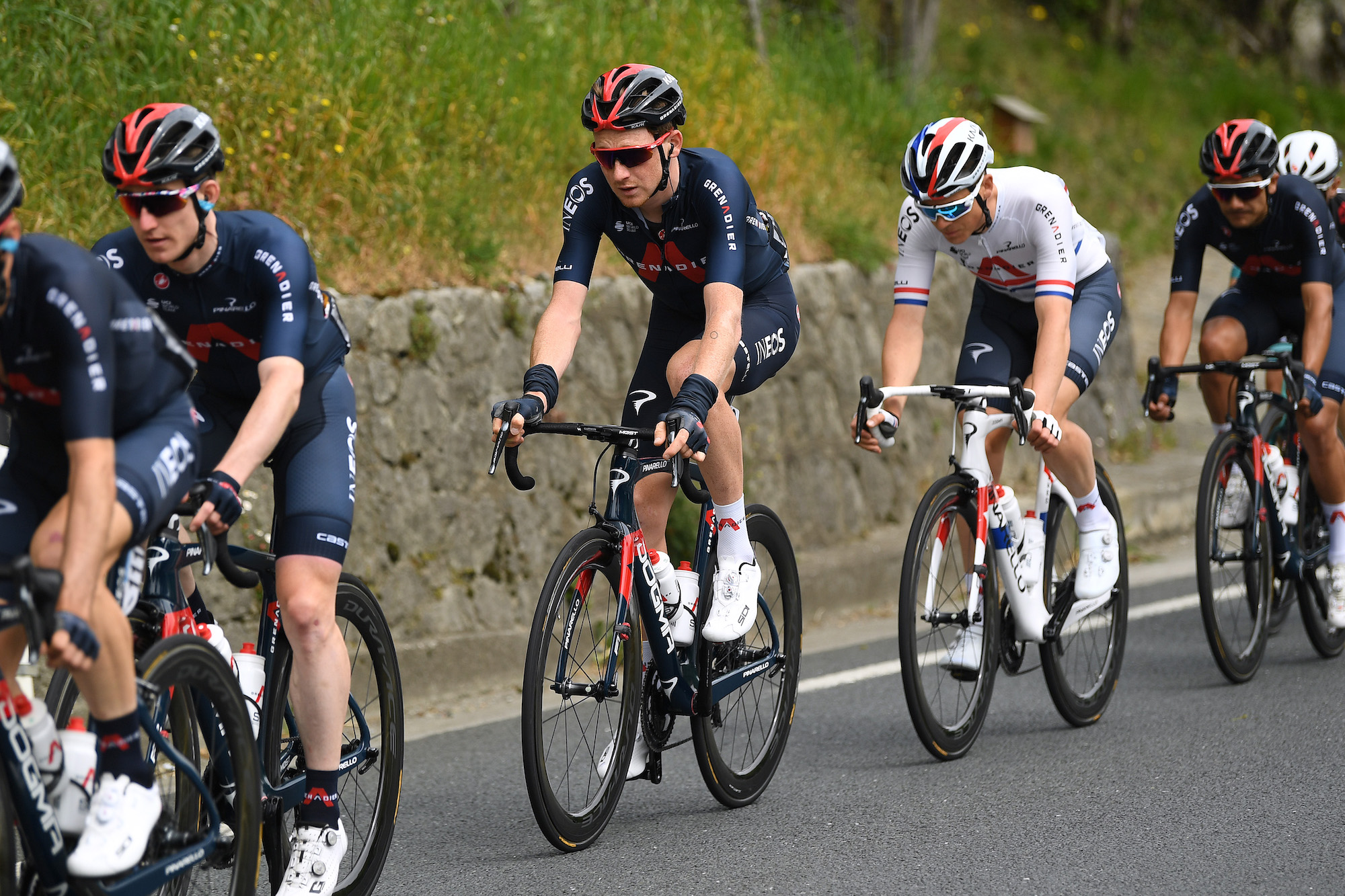
With the Giro d’Italia now just four weeks away, and the Tour de France looming just a couple of months later, it’s become clearer which riders are building well towards their major goals, and which riders still have lots of work to do.
In contrast to their total domination of the Volta a Catalunya, Ineos Grenadiers had a bad week, with Tao Geoghegan Hart and Richard Carapaz still struggling to find form. With them unable to provide the same support as Geraint Thomas and Richie Porte did in Catalunya, Adam Yates didn’t ride with the same freedom this week, but still looked in form as he finished in fourth overall.
Just behind him in fifth was David Gaudu (Groupama-FDJ), who rode superbly on the final day to claim the stage victory, and could have made the podium had he not lost so much time in the opening time trial — a weakness that may hold him back from being a genuine overall contender come the Tour de France later this year.
Alejandro Valverde (Movistar) also continued his renaissance to finish seventh overall, and again out-rode his younger team-mate, Enric Mas. Bahrain-Victorious’ duo Mikel Landa and Pello Bilbao both showed promising signs to finish sixth and eighth respectively, as they finalise their preparations ahead of the Giro.
Bora-Hansgrohe’s strong line-up ultimately disappointed as first Max Schachmann then Emanuel Buchmann faded away after promising starts, while Wilco Kelderman’s hopes were derailed in a crash that also took out Michael Woods (Israel Start-Up Nation).
Stephen Puddicombe is a freelance journalist for Cycling Weekly, who regularly contributes to our World Tour racing coverage with race reports, news stories, interviews and features. Outside of cycling, he also enjoys writing about film and TV - but you won't find much of that content embedded into his CW articles.